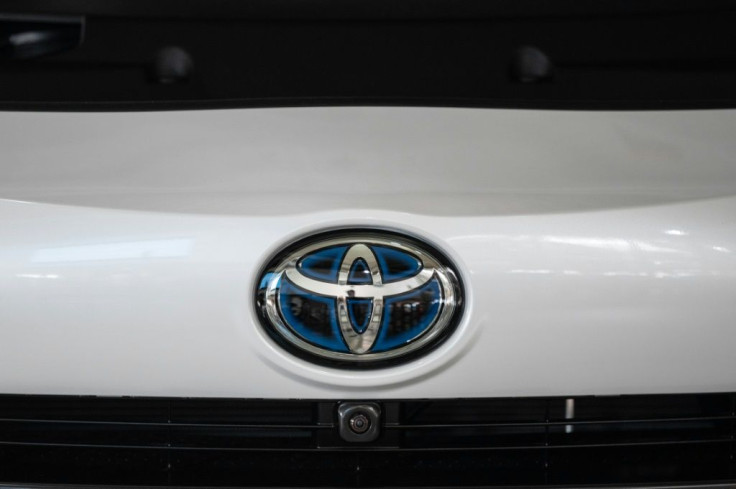Manchin Takes Aim At Tax Credit For Union-Made EVs: ‘Let The Product Speak For Itself’
KEY POINTS
- Manchin said it was best to “let the product speak for itself”
- Stabenow said she supported Manchin two years earlier for a union-centric proposal despite opposition
- Toyota and Honda have also expressed opposition to the provision
Sen. Joe Manchin, D-W.Va., has expressed opposition for a provision in the Biden administration's “Build Back Better” reconciliation bill to grant additional $4,500 federal tax credit for union-assembled electric cars, arguing that the best way forward was to “let the product speak for itself.”
Speaking with Automotive News at a Toyota event in West Virginia, Manchin said he immediately approached the provision’s sponsor, Sen. Debbie Stabenow, D-Mich., upon hearing of it. Manchin said he told Stabenow the provision’s extra tax credit for EVs developed by unions was “wrong.”
“It’s not who we are as a country. It’s not how we built this country, and the product should speak for itself,” he told the outlet. “We shouldn’t use everyone’s tax dollars to pick winners and losers,” he added.
Manchin said Stabenow's reaction to his comments was "not good" but he respects his co-worker's stance on the matter. A centrist Democrat who is opposed to several provisions of the reconciliation bill that are dear to progressives in the party, Manchin has already got diluted several climate friendly and tax provisions in President Biden's Build Back Better bill.
Senator Joe Manchin opposes a plan that would offer larger tax credits for the purchase of an electric vehicle made in the U.S. by union labor https://t.co/KEhwQOND6Z
— Bloomberg (@business) November 11, 2021
The proposed provision in question included the lifting of the 200,000 vehicles per manufacture limit, paying out an extra $4,500 for cars assembled in union facilities, and implementing $7,500 in point-of-sale consumer rebates for EVs.
The United Auto Workers (AUW) union has urged support for the proposed tax credits, CNBC reported. The AUW, which has more than 400,000 members, said the provision “recognizes the importance of unionized workers.”
Toyota campaigns against union requirement in EV tax credit plan https://t.co/InuXvdrpmr
— Dallas Morning News (@dallasnews) November 4, 2021
Honda calls union provision in EV tax credit bill "unfair." https://t.co/ZV3EIFH5bN pic.twitter.com/ZzXd9MBqul
— Los Angeles Business Journal (@LABJnews) September 27, 2021
However, other auto companies have also rejected the provision. Toyota Motor and Honda Motor have both expressed rejection of the exclusive tax credit. Bob Carter, the executive vice president of sales at Toyota, told CNBC’s “Squawk Box” that the incentive plan was a “bad public policy,” adding that “it’s bad for consumers; it’s bad for auto workers, and it’s bad for the environment.”
In a press release last week, Honda asked its consumers “for your help to ensure equal treatment of consumer tax credits for the purchase of an electric vehicle.” The company pointed out that “Honda’s American autoworkers deserve the same treatment every other U.S. autoworker” receives.
.@SenStabenow responds to @Sen_JoeManchin EV tax credit comments https://t.co/TsbFQhVJFu pic.twitter.com/a1ZGLtIog3
— davidshepardson (@davidshepardson) November 11, 2021
Responding to the issue via email to The Detroit News, Stabenow revealed that she backed Manchin’s proposed legislation two years ago to help West Virginia’s United Mine Workers of America union. Stabenow said there was some opposition to Manchin’s proposal at that time, calling it “unfair and was picking winners and losers.” Stabenow said “we rejected that argument and stood together to protect union pensions. This issue is no different. Standing up for hardworking Americans is always the right thing to do.”

© Copyright IBTimes 2025. All rights reserved.




















